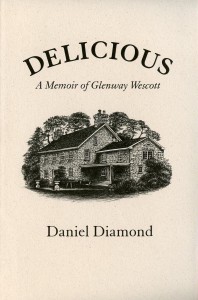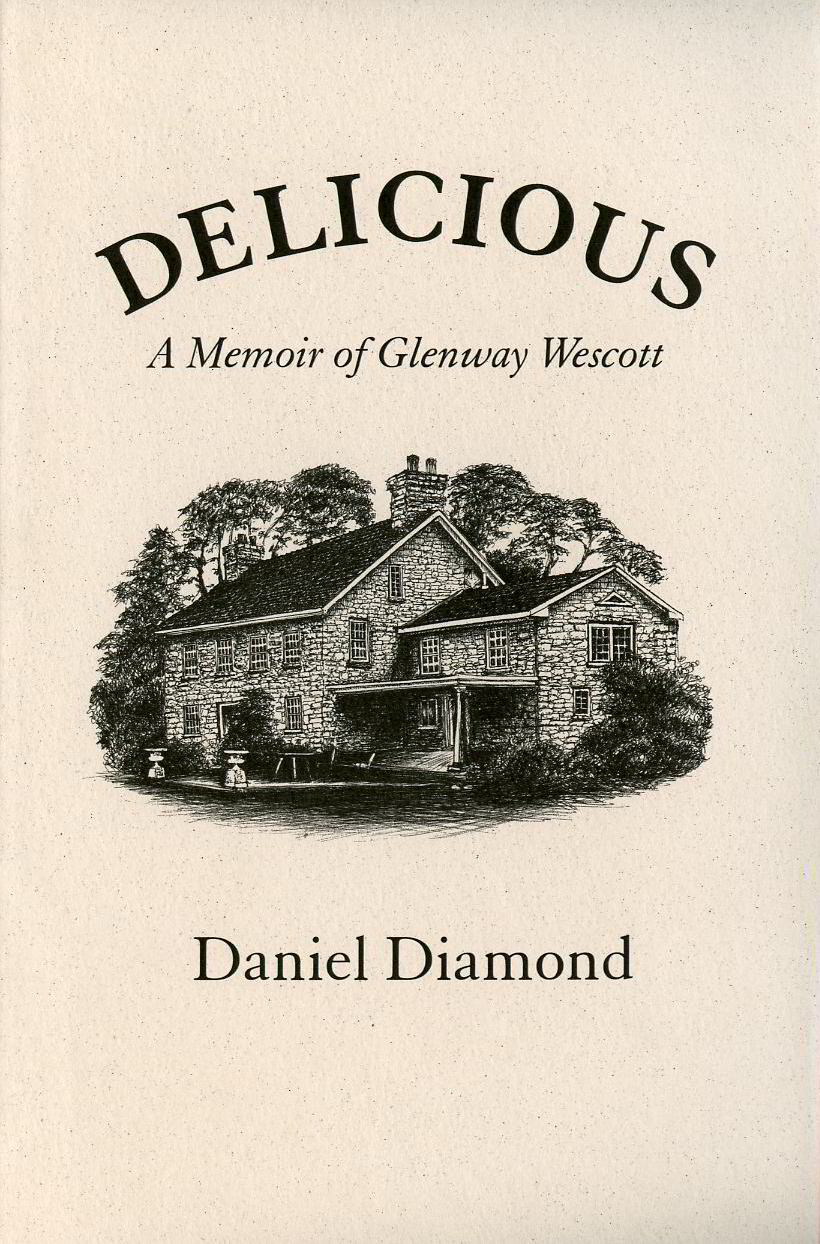 Delicious / A Memoir of Glenway Wescott
Delicious / A Memoir of Glenway Wescott
Daniel Diamond
Sykes Press. 65 pages, $20.
ERNEST HEMINGWAY once complained that Glenway Wescott made more money from his writing than did he, a man with a wife and family to support. Spitefully, Hemingway, based a gay character in The Sun Also Rises on Wescott, ensuring that a writer he eclipsed would be forever linked to his greatest novel.
Literary anecdotes about Glenway Wescott abound. After a childhood in rural Wisconsin, the handsome farm boy met his life partner, Monroe Wheeler, at the University of Chicago. Living in Europe before the war, the two men became friends with many prominent writers and artists. By 1930, Wescott had published two acclaimed novels and a book of short stories. Then the books stopped for a decade. Wheeler eventually began a prominent career as a curator at the Museum of Modern Art. In 1940, Wescott published a short novel, The Pilgrim Hawk, his masterpiece, and in 1945 another enduring novel, Apartment in Athens. From that year until his death in 1987, he published no new fiction. (Wheeler died eighteen months later.) The writer who had once made Hemingway jealous spent his remaining years on arts boards and writing his journals. He and Wheeler were well known as a gay couple, but they were temperamentally unable to embrace the liberation in life and in literature that was happening all around them in the 1970’s and 80’s.
Daniel Diamond’s Delicious is an account of the time he spent as an assistant to Wescott in the 80’s. Wescott was living in Hay-Meadows, a farmhouse in New Jersey; Wheeler had an apartment in Manhattan. Diamond drove Wescott back and forth between the two residences and helped Wheeler sort through boxes of letters and papers. There was hope that Wescott would publish an autobiography—he never did, but some of his journals were published posthumously—and initially we expect Delicious to be the story of that effort. It is not. Instead, the book is an affectionate but decidedly impressionistic reminiscence: there are no dates, there’s no narrative thread connecting the eleven short chapters, and Diamond acknowledges that he no longer remembers what was said on many occasions.
This attractively printed book can be read in a single sitting, which is the best way to experience what it offers: a portrait of a fragile, somewhat befuddled, but kindly man who in his final years has put behind him his brief period of achievement. In the evocative image that ends the book, he is content to return to the farmhouse and snowflakes of his childhood.
____________________________________________________________________
Daniel Burr is assistant dean at the U. of Cincinnati College of Medicine.







